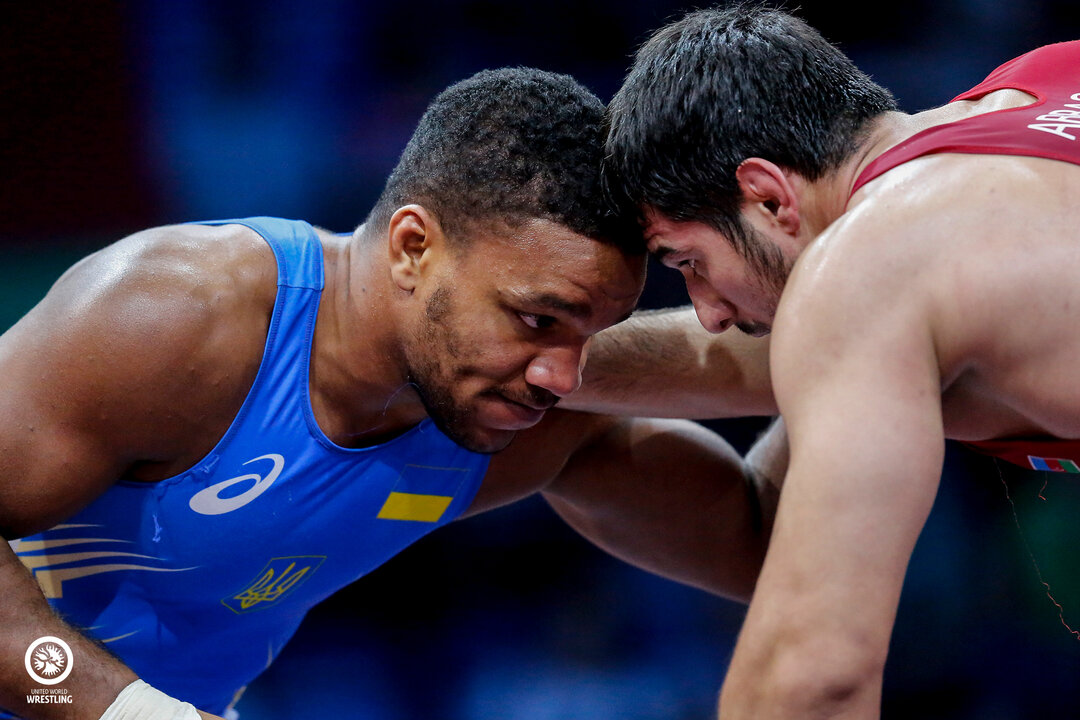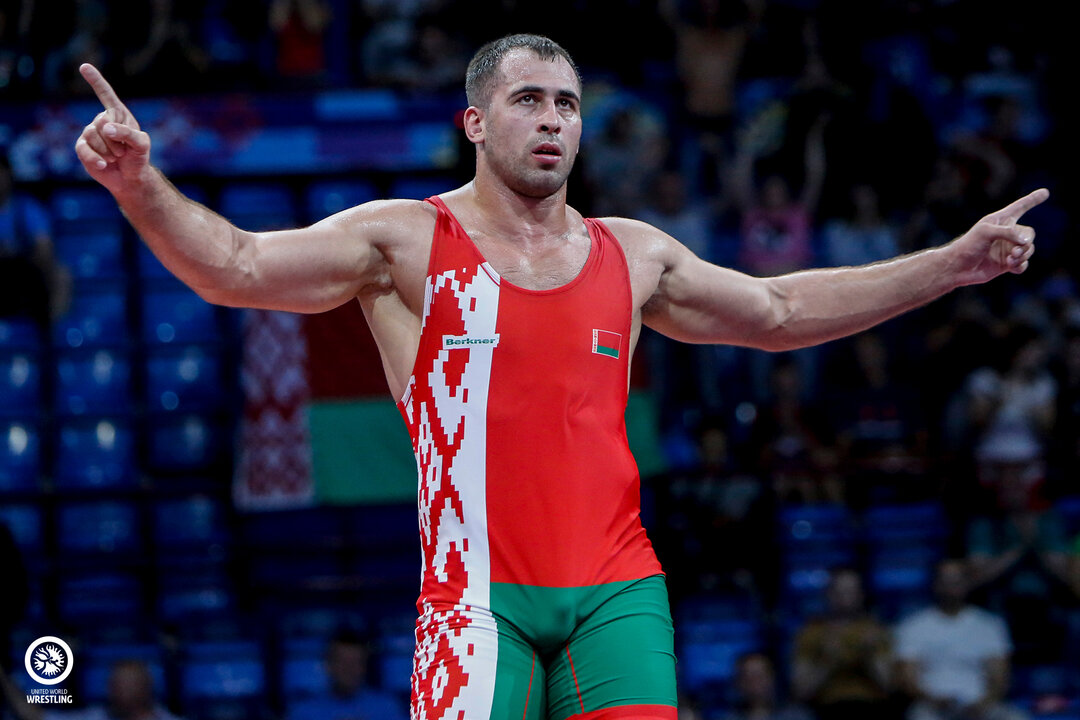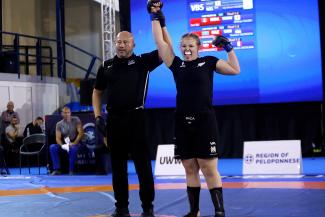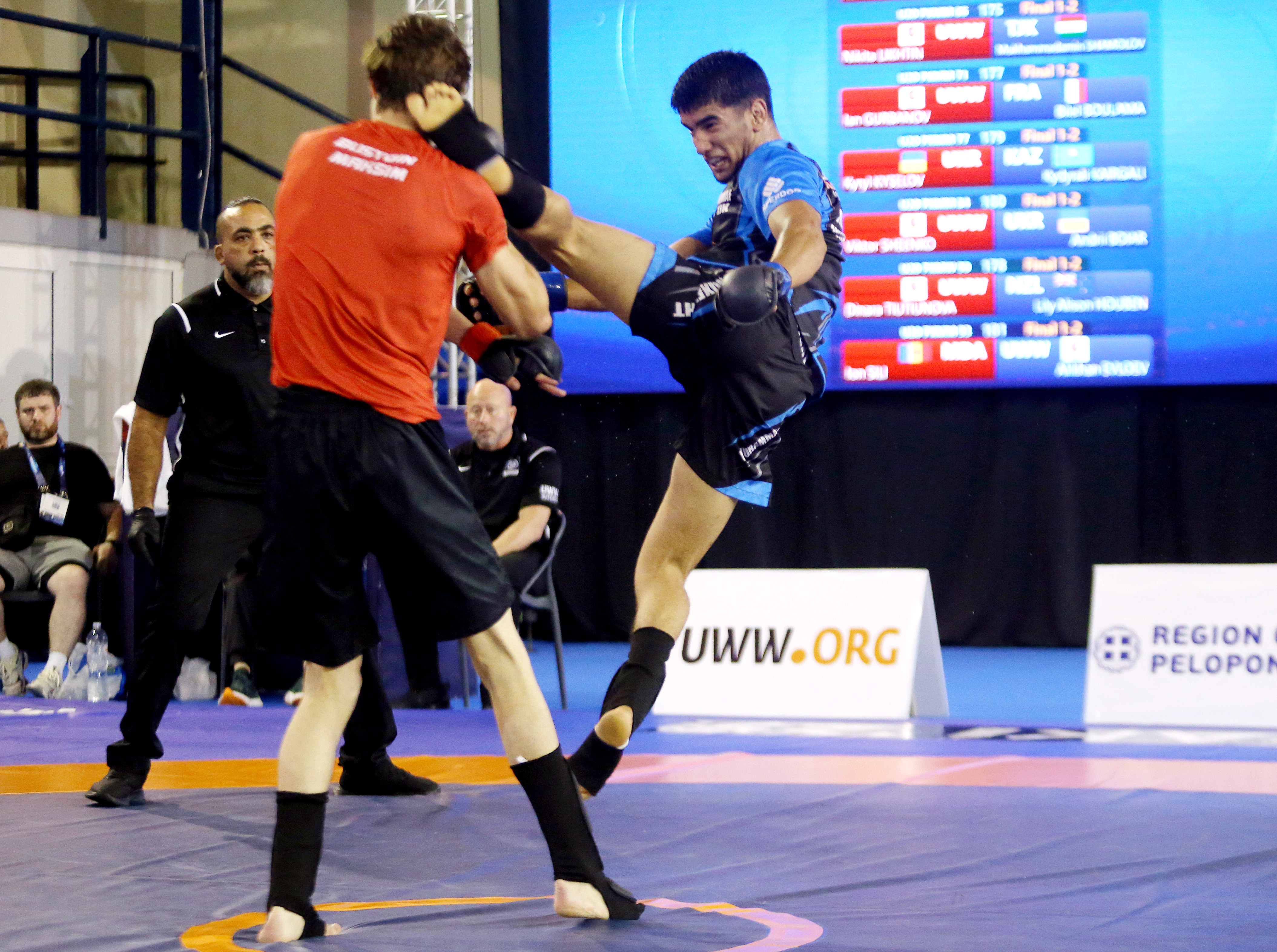Beleniuk, Aleksanyan, Hryshchanka Claim Golds on Final Day of European Games
Sunday, June 30, 2019 - 14:55 By United World Wrestling Press

MINSK, Belarus (June 30) - Artur ALEKSANYAN (ARM), one of the world's most decorated Greco-Roman wrestlers, can now add European Games gold medalist to a resume that includes an Olympic gold, three world titles and four European titles.
The 27-year-old Armenian shut out local favorite Aliaksandr HRABOVIK (BLR) 5-0 in the gold-medal match at 97kg in Greco-Roman on the final day of the European Games at the Minsk Sports Palace.
Aleksanyan scored a passivity point in the first period and led 1-0 at the break. He pulled away in the second period, going up 3-0 before executing a gut wrench with a little over a minute remaining in the match.
World No.1 Zhan BELENIUK (UKR) claimed the gold medal at 87kg, improving on his silver-medal performance at the previous European Games in 2015. Beleniuk, a 2015 world champion and 2016 Olympic silver medalist, defeated multiple-time U23 world medalist Islam ABBASOV (AZE) 3-1 in the gold-medal match. It was a rematch of this year's European Championships gold-medal match at 87kg, which Beleniuk won 5-1.
On Sunday, the 28-year-old Ukrainian scored first off a passivity and then used a gut wrench to go up 3-0 in the first period. Abbasov, ranked No.5 in the world, would add a point off a passivity in the second period, but Beleniuk would hang on to win by two. He celebrated with a victory dance on the mat. 
Kiryl HRYSHCHANKA (BLR) sent the home crowd into a frenzy by winning a gold medal at 130kg in the final wrestling match of the European Games. He topped multiple-time European medalist Iakobi KAJAIA (GEO) 5-1 in the finals. The Belarusian heavyweight went down 1-0 before turning the tables. With Kajaia looking for a turn in par terre, Hryshchanka reversed the action and put the Georgian in trouble, nearly securing a fall and gaining two points in the process. He then used an exposure to go up 4-1. He would add a passivity point in the final period to win by four.
World No.4 Viktor LORINCZ (HUN), a two-time world bronze medalist, earned a bronze medal at 87kg by defeating Ivan HUKLEK (CRO) 7-1. The other bronze medal at 87kg was won by Arkadiusz KULYNYCZ (POL), who picked up a 7-1 victory over Radzik KULIYEU (BLR). Kulynycz trailed at the break before scoring seven unanswered points in the second period.
Felix BALDAUF (NOR), a 2017 European champion, took home a bronze medal at 97kg with a 6-1 win over Olympic bronze medalist Cenk ILDEM (TUR). Two-time U23 world champion Aleksandr GOLOVIN (RUS) rebounded from a semifinal loss to Aleksanyan to beat Revazi NADAREISHVILI (GEO) 5-1 for a bronze medal at 97kg.
A pair of 2016 Olympic bronze medalists won bronze medals at 130kg, Sergey SEMENOV (RUS) and Sabah SHARIATI (AZE). Semenov, a returning world champion, dominated Mykola KUCHMII (UKR) 10-1. Shariati edged Oskar MARVIK (NOR) 3-2, scoring the go-ahead takedown with just under two minutes remaining. It's Shariati's second European Games medal as he won a silver medal in 2015.
RESULTS
Greco-Roman
87kg
GOLD - Zhan BELENIUK (UKR) df. Islam ABBASOV (AZE), 3-1
BRONZE - Viktor LORINCZ (HUN) df. Ivan HUKLEK (CRO), 7-1
BRONZE - Arkadiusz KULYNYCZ (POL) df. Radzik KULIYEU (BLR), 7-1
97kg
GOLD - Artur ALEKSANYAN (ARM) df. Aliaksandr HRABOVIK (BLR), 5-0
BRONZE - Felix BALDAUF (NOR) df. Cenk ILDEM (TUR), 6-1
BRONZE - Aleksandr GOLOVIN (RUS) df. Revazi NADAREISHVILI (GEO), 5-1
130kg
GOLD - Kiryl HRYSHCHANKA (BLR) df. Iakobi KAJAIA (GEO), 5-1
BRONZE - Sergey SEMENOV (RUS) df. Mykola KUCHMII (UKR), 10-1
BRONZE - Sabah SHARIATI (AZE) df. Oskar MARVIK (NOR), 3-2


 Muhammadkabir NAZARZODA (TJK) won gold medal in the 62kg weight category. (Photo: United World Wrestling)
Muhammadkabir NAZARZODA (TJK) won gold medal in the 62kg weight category. (Photo: United World Wrestling)
Share your thoughts.
Comments